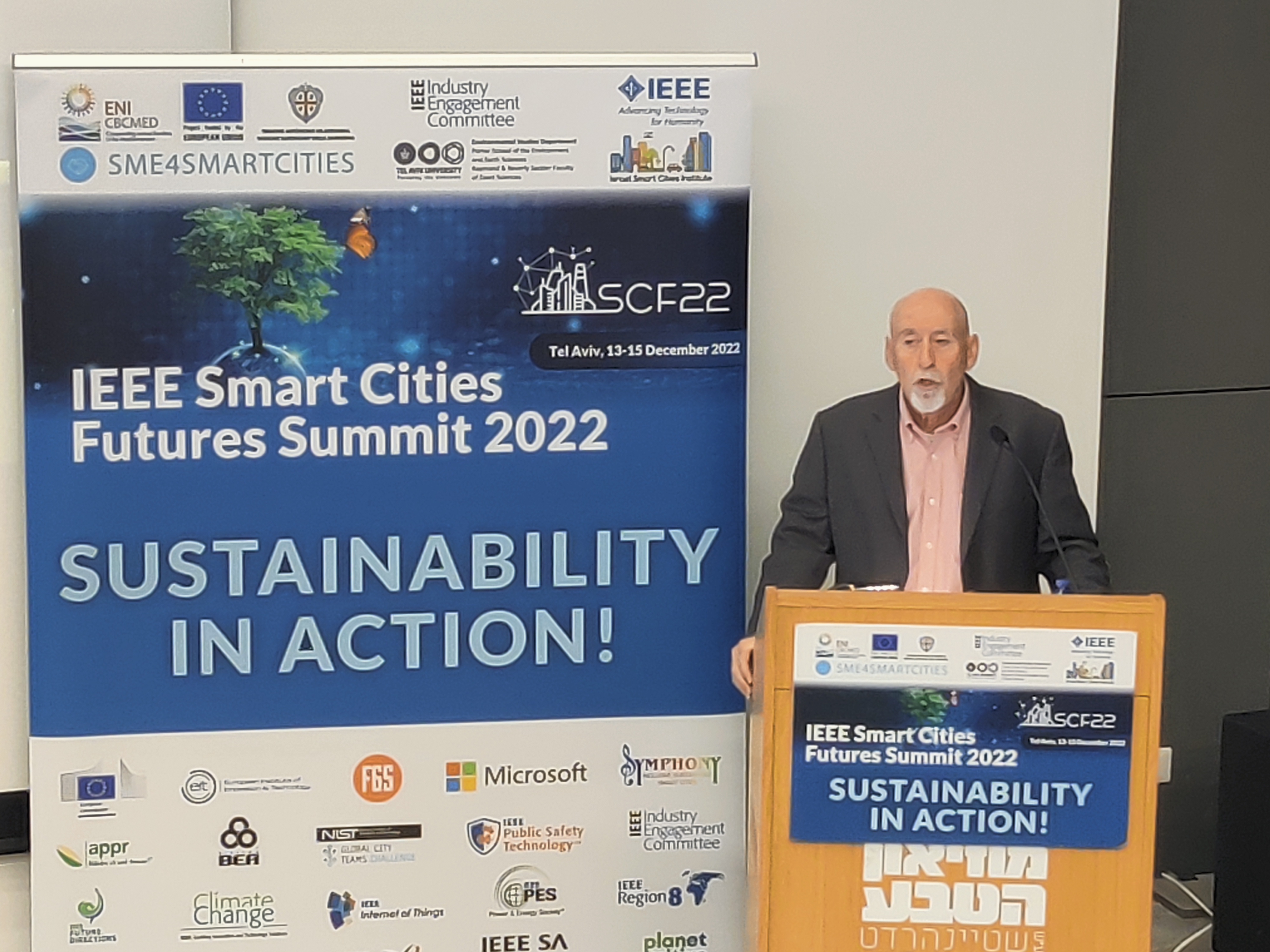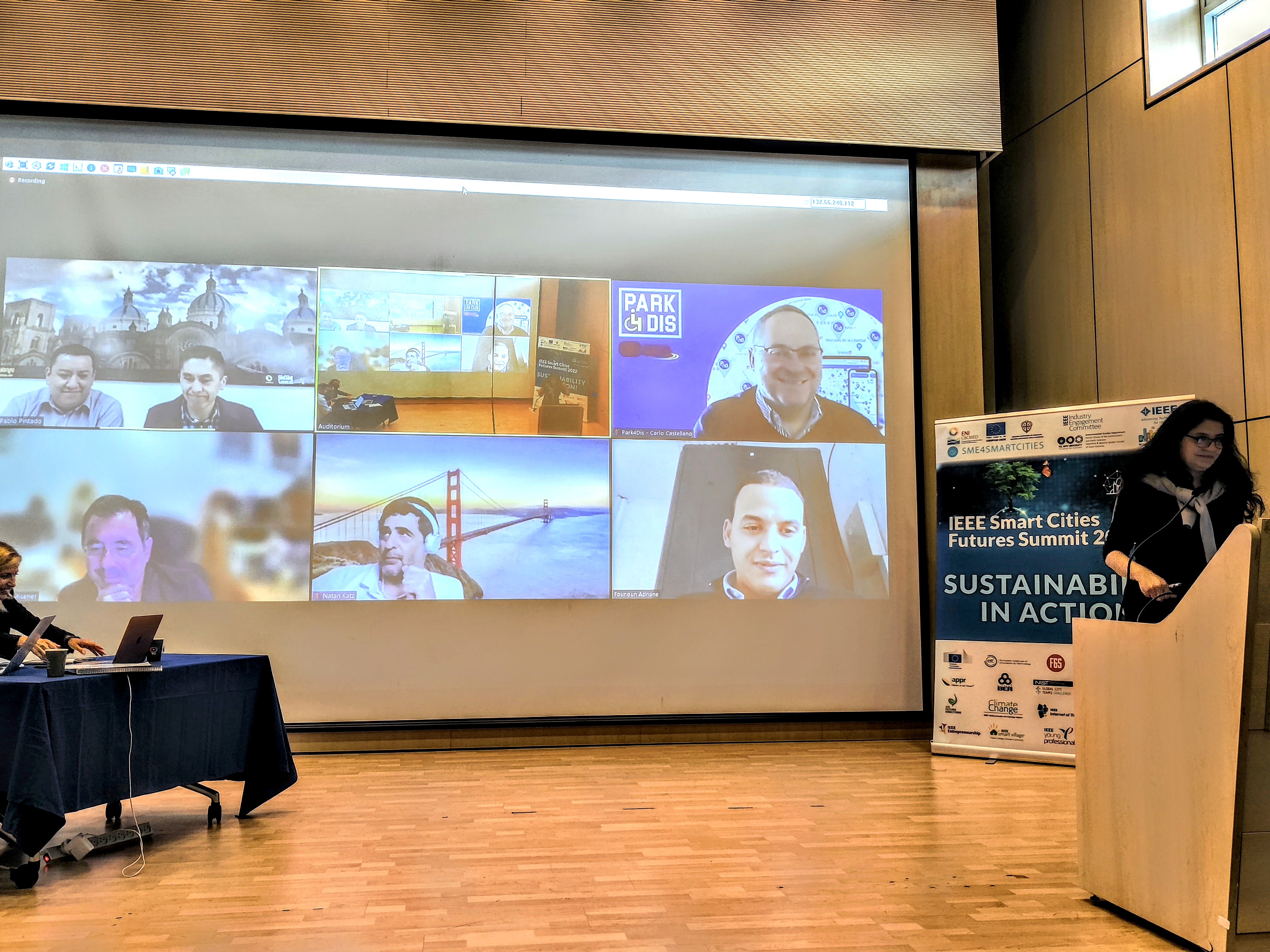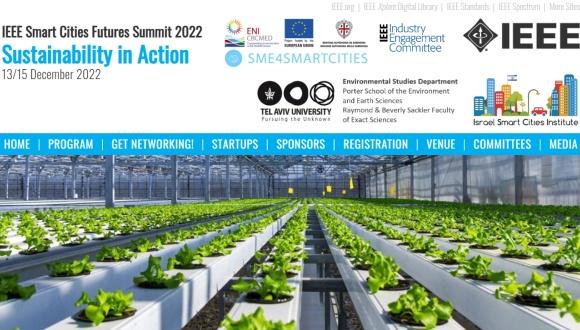Sustainability in Action
A summit led by IEEE, SME4SMARTCITIES and Tel Aviv University brings together a global audience to enhance the future of our cities
Smart Cities Futures Summit: Sustainability in Actions homepage
To discuss initiatives to enhance the future of our cities, a 3-day global summit was broadcasted from the Dept. of Environmental Studies at the Porter School, with worldwide participation
Hundreds of cities around the globe are taking intensive initiatives to overcome major challenges such as energy, food, water supply, mobility, air quality, dense urbanization and climate changes. An amazing number of small and big enterprises and organizations are working on innovative solutions. But are they interlinked in co-creation and co-innovation or are they working in separation? Are they creating supporting, synergic networks or do they conduct parallel initiatives?
This was a major thread along the 3-day IEEE Smart Cities Futures Summit: Sustainability in Action, hosted in collaboration by IEEE, the world's largest technical professional organization, the Porter School of Environmental & Earth studies at Tel Aviv University and the SME4SMARTCITIES project of the ENI CBC MED EU program. The global summit took place both simultaneously online and at the Steinhardt Museum of Natural History and the Porter building at Tel Aviv University to bring together Industry, entrepreneurs, government, municipality and academy to enhance the future of our cities.
Along with keynotes and discussions, 11 sessions and round tables discussed major areas of interest. SME4SMARTCITIES project partners and TAU experts led 4 of these sessions: “Responsible technology for combating the climate crisis”, “Sustainable energy in the face of a crisis”, “New urban landscapes - where social well-being meets digital” and “Bringing together cities and industry for solution co-creation”.
The term “Smart cities” refers to a movement that involves various approaches towards the implementation of a vast range of solutions, from nature-based solutions to digital services and data spaces. As a global movement, the concept of smart cities and the resulting initiatives, solutions and services is relevant to almost any aspect of our life.
110 Speakers and the global audience, which could communicate and participate directly through a Whova digital platform, revealed the rich landscape of smart cities as it takes shape through different lenses, from the viewpoint of global institutions (including the United Nations and European Commission), cities, government agencies, associations working on sustainability projects, industry (including industry leaders from corporate level to SMEs and startups), research, academia, and NGOs; each reflecting the needs, values, challenges and initiatives of certain stakeholders.
The broad views they provided, and the many initiatives open the door to many exciting solutions and collaborations in the 3 major themes of Climate Crisis (climate change, disaster recovery and mitigation); Self-Sufficient Cities (water, energy, food, manufacturing); and Future Cities (Lives & Jobs, connectivity, mobility, education, healthcare, local economies, etc.). Discussions and Insights from the summit will be discussed in articles and publications by the SME4SMARTCITIES project that will soon follow.

Prof. Alon Tal at the opening of the Cities Futures Summit

A hybrid local-digital global session at the conference. The “New urban landscapes” session.
Chair: Dr. Ronit Purian, Tel Aviv University, Speakers: Founoun Adnane, Diplomatic Envoy for the Governerate of the Province of Berkane (Morocco), Carlo Castellano, CEO, Park4Dis, SME4SMARTCITIES solution subgrant SME (Spain), Natan Katz- Researcher, Checkpoint (Israel), Jim Misener, Senior Director, Product Management, Qualcomm (USA), Pablo Fernando Pintado, DG of ICT for the Municipality of Cuenca and Jeffrey Badí Quinteros Basantes, Information Security Officer at the Municipality of Cuenca (Ecuador)


